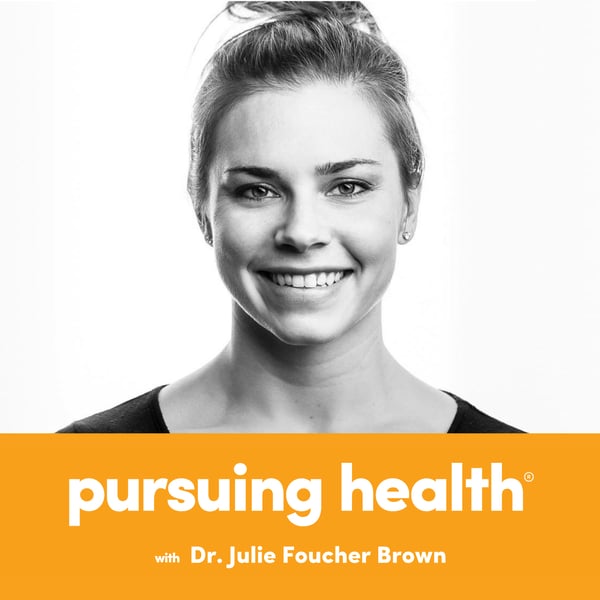CrossFit Health Tip - Fasting with Mike Mallin, MD PH258
Pursuing Health
Julie Foucher Brown MD, MS.
4.8 • 1.3K Ratings
🗓️ 17 March 2022
⏱️ 3 minutes
🧾️ Download transcript
Summary
Transcript
Click on a timestamp to play from that location
| 0:00.0 | Hey there and welcome to Pursuing Health. I'm Dr. Julie Fouche, family physician and |
| 0:09.1 | former CrossFit Games athlete. Here is your bonus weekly CrossFit Health Tip, which |
| 0:13.2 | was originally published on CrossFit.com. Enjoy. |
| 0:15.9 | I'm here today with Dr. Mike Malin, emergency medicine physician, and we're going to be |
| 0:22.4 | talking about fasting. So first of all, how do we define fasting? |
| 0:26.9 | Well fasting is not eating, and there's lots of ways to not eat, but typically what |
| 0:32.3 | we hear about these days is something called timer-stricted feeding, where you only eat |
| 0:35.8 | to in certain times of the day, or actual fasting, where you're going periods of time without |
| 0:40.2 | taking in that food. Got it. And how does fasting impact our health? |
| 0:45.0 | In so many ways. I mean, believe it or not, the average American eats 15 hours a day, |
| 0:49.4 | which means that they're basically eating when they go to bed and then immediately when |
| 0:52.4 | they wake up. And if you eat like that, you don't give your body the opportunity to |
| 0:56.3 | sort of clear out the byproducts of metabolism from the day. And your cells need that. |
| 1:00.9 | They're not used to be in an anabolic, let's build state all the time. They need that |
| 1:04.8 | opportunity to turn off for a little while and to clear up some of those proteins, those |
| 1:08.4 | broken down proteins that you've created throughout the day. |
| 1:11.4 | What if some of the studies that are looking specifically at timer-stricted feeding or |
| 1:15.5 | per-long fasting, what are they telling us about decreased risk of different chronic diseases? |
| 1:20.7 | Lots of things. So we're seeing decreased rates of obesity, improved blood pressure, decreased |
| 1:25.0 | insulin resistance, better lipids, lower cardiovascular disease, decreased cancer and inflammation |
| 1:30.0 | risk. So quite a few improvements in life just by not eating all the time. And it's really |
| 1:36.5 | interesting that you could do something as simple as just not eat every hour of the day |
... |
Please login to see the full transcript.
Disclaimer: The podcast and artwork embedded on this page are from Julie Foucher Brown MD, MS., and are the property of its owner and not affiliated with or endorsed by Tapesearch.
Generated transcripts are the property of Julie Foucher Brown MD, MS. and are distributed freely under the Fair Use doctrine. Transcripts generated by Tapesearch are not guaranteed to be accurate.
Copyright © Tapesearch 2025.

